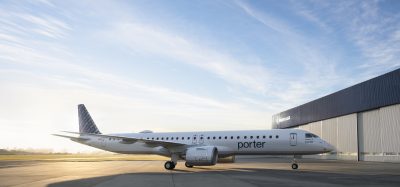Moving into the 21st century
- Like
- Digg
- Del
- Tumblr
- VKontakte
- Buffer
- Love This
- Odnoklassniki
- Meneame
- Blogger
- Amazon
- Yahoo Mail
- Gmail
- AOL
- Newsvine
- HackerNews
- Evernote
- MySpace
- Mail.ru
- Viadeo
- Line
- Comments
- Yummly
- SMS
- Viber
- Telegram
- Subscribe
- Skype
- Facebook Messenger
- Kakao
- LiveJournal
- Yammer
- Edgar
- Fintel
- Mix
- Instapaper
- Copy Link
Posted: 1 June 2012 | Mark Glover, Commissioning Editor, International Airport Review | No comments yet
Gatwick Airport is undergoing a major refurbishment that is set to improve the passenger experience and encourage airlines to use its facilities. Mark Glover from International Airport Review spoke to Angus McIntyre, Airline Business Development Manager at Gatwick to talk about the plans to compete with London’s ‘other’ airport and Gatwick’s recent success in the Asian airlines market.
Mark Glover: Why is the Asian market so important to Gatwick?
Angus McIntyre: In comparison to others, the Asian markets are doing rather well at the moment so we were certainly keen to be involved. We initially identified that there were a number of direct routes that were not being served into London from Asia, and we felt that we had to give passengers the option, when flying to London, so there would be no requirement to stop over in Hong Kong or Singapore. We want to become, if you like, the ‘Asian gateway’ into London.
However, I am keen to point out that as a group we had our eyes on this Asian market some time before it started to become so important for the aviation sector. For example, we now work with airlines in Vietnam, yet to get to that stage took nearly four years. Believe me; it took a huge amount of hard work to get them to fly into Gatwick.
Ultimately though, if you are an Asian airline, or indeed a passenger in Asia wanting to come to London then we feel we are ideally placed. We have good links into central London as well as 6am slots meaning that those businessmen or women needing to be in town by 8am can be.
Gatwick Airport is undergoing a major refurbishment that is set to improve the passenger experience and encourage airlines to use its facilities. Mark Glover from International Airport Review spoke to Angus McIntyre, Airline Business Development Manager at Gatwick to talk about the plans to compete with London’s ‘other’ airport and Gatwick’s recent success in the Asian airlines market.
Mark Glover: Why is the Asian market so important to Gatwick?
Angus McIntyre: In comparison to others, the Asian markets are doing rather well at the moment so we were certainly keen to be involved. We initially identified that there were a number of direct routes that were not being served into London from Asia, and we felt that we had to give passengers the option, when flying to London, so there would be no requirement to stop over in Hong Kong or Singapore. We want to become, if you like, the ‘Asian gateway’ into London.
However, I am keen to point out that as a group we had our eyes on this Asian market some time before it started to become so important for the aviation sector. For example, we now work with airlines in Vietnam, yet to get to that stage took nearly four years. Believe me; it took a huge amount of hard work to get them to fly into Gatwick.
Ultimately though, if you are an Asian airline, or indeed a passenger in Asia wanting to come to London then we feel we are ideally placed. We have good links into central London as well as 6am slots meaning that those businessmen or women needing to be in town by 8am can be.
MG: You have obviously enjoyed some initial success in Asia. How do you want to carry this forward?
AM: Ideally we would like more business from China. There is no direct Jakarta to London route, so talking with Garuda Airlines will be a positive move. In Indonesia, I can see parallels of where we were with Vietnam two or three years ago but now we need to push on and convince them of the benefits.
MG: You have highlighted the work that went into your partnership with the Vietnam market. What were their concerns when thinking about Gatwick as a destination?
AM: It was a combination of things. The country has a state-run airline and with most State entities doing business is never really straight forward; there are protocols and legislations to adhere to and Vietnam was certainly no different.
Our biggest challenge when extolling the virtues of the airport is communicating with people who have never been to Gatwick. If you are the CEO of an airline based in Jakarta, your perception of the London airport industry will be Heathrow. To put it into perspective, 70-80 per cent of our traffic is UK originating and our passengers know us and trust us. However, somebody from a village in Vietnam or Indonesia won’t necessarily be aware of us. So for us, it’s about working with embassies, tourist authorities, and the press and media in those overseas markets to get our message across.
MG: The relationship between an airline and airport can be tricky. How have you gone about cementing relationships with not just your Asian customers, but all of your airlines?
AM: We always listen when an airline comes to us with a concern or a requirement and we try and act on what they are telling us. Through regular engagement and proper consultation with the airlines we can garner the necessary feedback to take things forward. We have strong relationships with all of our key accounts as well as all of the smaller ones – so everybody can voice their opinion. Of course, the experience and feedback of the passengers will also effect an airline’s decision to use us, so we have undergone a number of logistical changes at the airport. We have put a new central security search area in the South Terminal which has dramatically improved progress through the security areas. To do this, however, we had to remove some shops from the precinct. Of course, removing your income generating facilities can be seen as a crazy move but our priority is for the passengers and making their journey through the airport as smooth as possible.
MG: How important then, is passenger flow?
AM: These days at Gatwick, the average queue time through the security process is just one minute fifty, which is a quantum leap from where we were before. It just shows that if you can invest in the infrastructure to take passengers through smoothly, it is worth every penny as ultimately, it can transform people’s perception of an airport. As a passenger you feel more confident moving around our terminal buildings which now have more of an ‘upmarket’ feel, whereas before we were classified as a leisure airport.
MG: How much has the airport changed since its re-development?
AM: The airport looks modern. I’ll be honest and open with you; but before the investment, it looked a bit tired and it didn’t look like an airport that would really support our objective and mission of being the London airport of choice and now we are a 21st century airport. With projects such as the terminal forecourt rehabilitation and North Terminal transit link, it now feels like a brand new European airport and not the Gatwick of old. It’s bright, clean and light and feels modern and slick. It’s an airport that London should be proud of.
Biography
Angus McIntyre was born in Rinteln, Germany. He achieved a BA (Hons) in Accounting and Finance at the University of Greenwich and became an Associate Chartered Management Accountant in 1996. Angus worked in Commercial Finance for several large corpora – tions before making a move into the commercial world of business development and account management. He honed his skills in both finance and commercial sectors across a range of different industries from Pharmaceuticals to Aviation, having worked for both Kuwait Aviation Petroleum and British Airways.

















